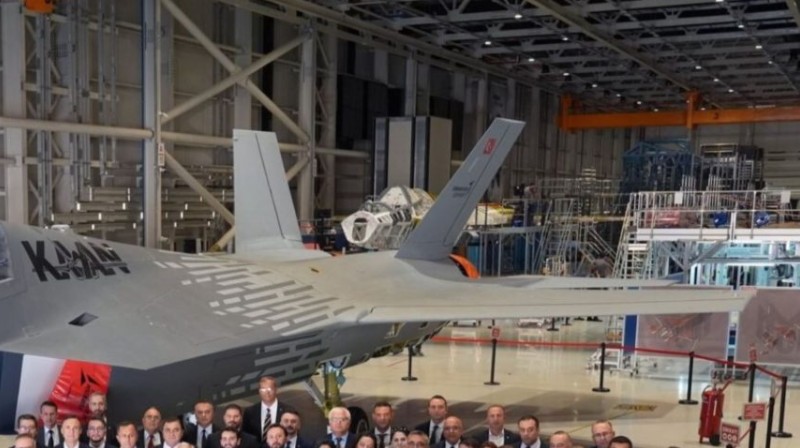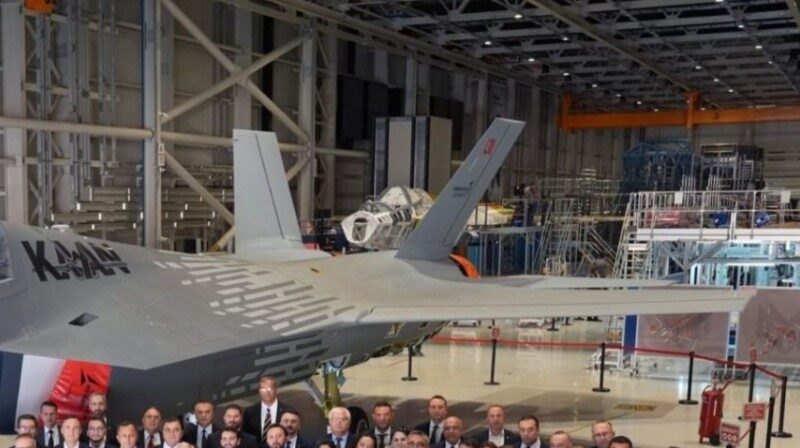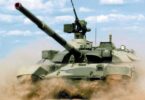Foreign Minister of Turkey Hakan Fidan released a statement, confirming that the United States Congress has blocked the export of crucial engines meant for Turkey’s indigenous KAAN fifth-generation fighter jet program.
This development is a precedence to the growing mistrust within NATO and also reflective of the staggering US-Turkey defence relations in the aftermath of Ankara’s acquisition of Russia’s S-400 air defence system.
This decision will hinder the KAAN program at a crucial stage, especially when Turkey banks on it to become one of the leading nations in the manufacture of stealth fighter jets.
This also carries negative implications for regional power balances in the Eastern Mediterranean, Middle East, and South Asia, where Turkey is striving to exert its influence through defence exports and indigenous military technology.
Turkey will require to boost the development of its domestic engine technology while looking for alternative suppliers from Russia or China or continue with its dependency on its ageing fleet of F-16s.
This development could prove advantageous to Greece and Israel with their growing F-35 fleets.
Turkey’s TRMotor’s indigenous engine program has also been sped up with emergency funding, but it may require minimum of seven years away for completion.
KAAN Fighter Jet Program
The KAAN, formerly designated the TF-X, is regarded as Turkey’s boldest defence-industrial project, which will torpedo Ankara amongst the nations capable of building fifth-generation stealth combat jets.
The KAAN program was launched in 2010 under Turkish Aerospace Industries (TAI).
It aims to substitute the Turkish Air Force’s legacy F-16 fleet while being exportable product to rival platforms like the US F-35, China’s J-31/J-35, and South Korea’s KF-21 Boramae.
In 2023, the prototype of the KAAN was unveiled. It made its maiden flight in February 2024.
Designed with advanced stealth shaping, integrated avionics, and the capability to achieve super cruise without afterburners, the KAAN is expected to compete with fifth-generation Western and Chinese designs.
The aircraft’s early prototypes rely on US-manufactured General Electric F110-GE-129 turbofan engines, the same engines powering upgraded F-16s, with Turkey planning to build 20 KAANs using this configuration before switching to an indigenous power plant.
In order to diversify its strategic effort without limiting itself to the west, Indonesia became the first international partner in July 2025. It invested in the program as Pakistan has been in talks to also join as a potential partner and customer.
The KAAN integrates Turkish-made AESA radar, mission software, and electronic warfare suites, distinguishing it from South Korea’s KF-21, which still relies heavily on US subsystems.
The US Congress’s Decision and Fidan’s Statement
Foreign Minister Hakan Fidan stated that the US has blocked the export licenses for GE’s F110 engines, calling the move “a deliberate obstruction against Turkey’s rightful ambition to secure its national defence independence.”
He accused the US of leveraging military technology as a political weapon against Ankara’s strategic autonomy.
The blocked engines are essential for Turkey’s planned Block 0 and Block 1 production runs of the KAAN. This was expected to provide the Turkish Air Force with initial operational capability before the integration of a domestic engine.
The new development coincides at the time when Turkey is to restructure a $7 billion arms deal with the US, which initially focussed on new F-16s and missile packages, compared to the recent priority of including the engine supply and local co-production rights.
Turkey has asked not only to be permitted to import the F110 engines but also to assemble both F110 and F404 engines domestically in order to reduce dependency.
US lawmakers, however, have avoided these requests, stating national security concerns, intellectual property sensitivities, and lack of trust in Ankara’s willingness to align with NATO policies.
Ankara views Washington’s actions as its reluctance to maintain trust and transparency with Turkey especially in regards to advanced aerospace technologies.
The roots of the congressional decision may be linked to 2019, when Turkey acquired Russia’s S-400 Triumf long-range surface-to-air missile system despite US warnings.
This led to Turkey’s removal from the F-35 Joint Strike Fighter program and triggered sanctions under Washington’s Countering America’s Adversaries Through Sanctions Act (CAATSA).
US officials believe that the S-400, when deployed in close proximity to NATO aircraft, risks exposing sensitive radar signatures and potentially compromising the stealth profile of advanced Western jets.
More on the Turkey’s policies in the region and beyond.
Turkey and Syria signed a security agreement in August to assist Damascus in military training and cooperation: https://www.thestrategicperspective.org/ankara-seeks-deterrence-against-tel-aviv-by-militarily-reinforcing-syria/
The growth of the Arab-Islamic NATO: https://www.thestrategicperspective.org/arab-islamic-nato/
The Pakistan-Turkey strategic talks and cooperation were discussed here: https://www.thestrategicperspective.org/pakistan-turkey-strategic-talks/
Turkey’s extremely close ally, Azerbaijan, fortified their ties with Pakistan on a round of bilateral political consultations: https://www.thestrategicperspective.org/pakistan-and-azerbaijan-fortify-their-ties/
Washington’s use of Islamic terrorism as a tool for extending the American policy in the region: https://www.thestrategicperspective.org/donald-trump-and-islamic-terrorism/
Turkey reached an agreement with Egypt for joint production of drones in Cairo: https://www.thestrategicperspective.org/turkey-egypt-agreement-to-jointly-produce-vtol-drones-in-cairo/











